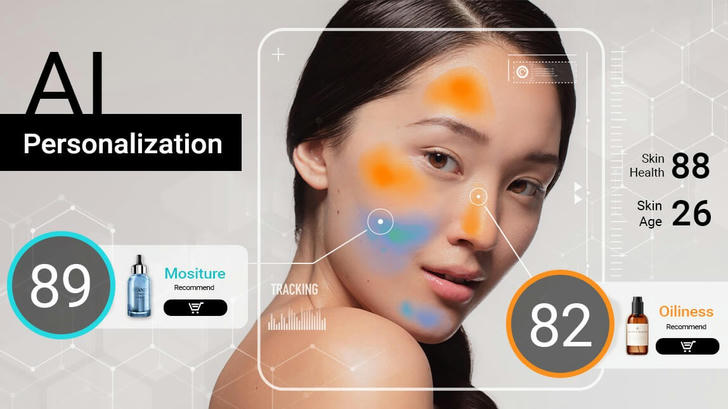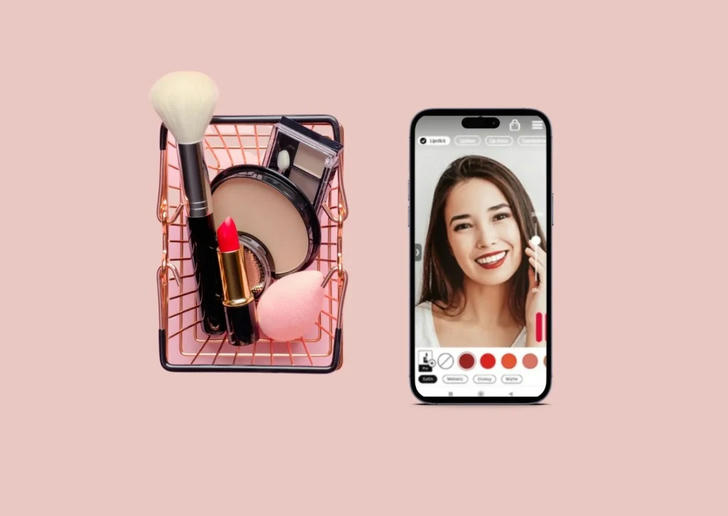Personalized Skincare Devices: How AI Is Revolutionizing Beauty Routines
In 2025, the beauty industry is undergoing a high-tech makeover—thanks to artificial intelligence. Personalized skincare devices, powered by AI, are transforming how people care for their skin by providing real-time analysis, targeted treatments, and customized product recommendations. These futuristic tools are no longer just a luxury—they’re becoming an essential part of modern beauty routines.
So, how exactly is AI changing skincare, and why are personalized skincare devices gaining so much traction?
What Are Personalized Skincare Devices?
Personalized skincare devices are smart gadgets designed to assess your unique skin conditions and deliver tailored skincare treatments. Equipped with AI-powered sensors, cameras, and machine learning algorithms, these devices can analyze a wide range of skin data such as:
- Moisture levels
- Oil production
- Skin texture and elasticity
- Fine lines and wrinkles
- Acne or blemishes
- Pigmentation and UV damage
Based on this analysis, the device can recommend or even dispense the right skincare products, adjust treatment intensity, or provide guidance on daily routines—all in real time.
Popular devices on the market in 2025 include:
- AI Skin Analyzers (e.g., Lumini PM, HiMirror)
- Smart Facial Cleansing Brushes (with adaptive vibration settings)
- Personalized Serum Dispensers (that blend ingredients based on skin needs)
- LED Light Therapy Masks with AI Modulation
- Portable Skin Diagnostic Tools that sync with apps for tracking and coaching
Why Are These Devices Trending in 2025?
1. One-Size-Fits-All Skincare Is Outdated
Every person’s skin is different, and even the same skin can change based on weather, diet, stress, or hormones. Generic skincare routines simply can’t keep up. AI devices, on the other hand, adapt in real time to offer truly personalized care—like having a dermatologist in your pocket.
2. Convenience and Automation
In today’s fast-paced world, convenience is everything. Instead of scheduling spa appointments or guessing which products to use, consumers can now scan their skin at home and get instant treatment recommendations. Some devices even integrate with auto-replenishment skincare subscription services, so you never run out of the right products.
3. Data-Driven Results
AI devices track your skin over time, collecting valuable data to show whether your skincare routine is actually working. This empowers users to measure progress, adjust regimens, and avoid wasting money on ineffective products.
4. Technology Meets Self-Care
As wellness and self-care take center stage globally, AI skincare devices provide a science-backed way to pamper yourself. Light therapy, smart massage heads, and personalized hydration routines are no longer just found in luxury spas—they’re accessible at home.
How Do These Devices Work?
Here’s a breakdown of how a typical AI skincare device functions:
- Scanning and Analysis: Using a high-resolution camera and sensors, the device scans your face in detail.
- AI Evaluation: Algorithms evaluate your skin against large datasets of diverse skin types and conditions.
- Personalized Recommendation: Based on the findings, it recommends skincare actions or delivers treatments.
- Progress Tracking: Over time, it monitors changes and adjusts your routine accordingly.
Some advanced devices even offer live dermatologist chats, UV damage simulations, and AR overlays to show predicted results with continued usage.

Who Should Use AI Skincare Devices?
These devices are suitable for almost everyone, especially:
- People struggling to find the right skincare products
- Those with changing skin conditions (e.g., hormonal acne, dry seasonal skin)
- Busy professionals who want fast, effective routines
- Skincare beginners looking for step-by-step guidance
- Tech-savvy users seeking measurable results
Potential Limitations
Despite their benefits, personalized skincare devices are not perfect:
- Cost: Premium models can range from $200 to $1,000+.
- Learning Curve: Some devices require a bit of setup and consistent use to be fully effective.
- Privacy Concerns: Storing facial data raises privacy questions. Reputable brands are addressing this with encrypted storage and transparent policies.
What’s Next for AI in Beauty?
The future of AI in skincare is even more exciting. Here’s what we can expect:
- AI-powered skin DNA testing kits
- Integration with wearable devices for lifestyle-based skincare recommendations
- Real-time environment-based adjustments (e.g., adapting skincare based on local humidity or pollution)
- AI-enhanced makeup tools that apply foundation based on skin tone and texture
- Augmented reality “mirror try-ons” for skincare simulation

Final Thoughts
AI-powered personalized skincare devices are not just a trend—they’re a technological leap that’s putting science, convenience, and customization into the hands of everyday consumers. Whether you're tackling acne, fine lines, or dryness, these smart tools are making it easier than ever to build a skincare routine that actually works—for your skin and your lifestyle.
In 2025, your beauty routine is no longer guesswork. Thanks to AI, it’s precision care—tailored, tracked, and truly transformative.
